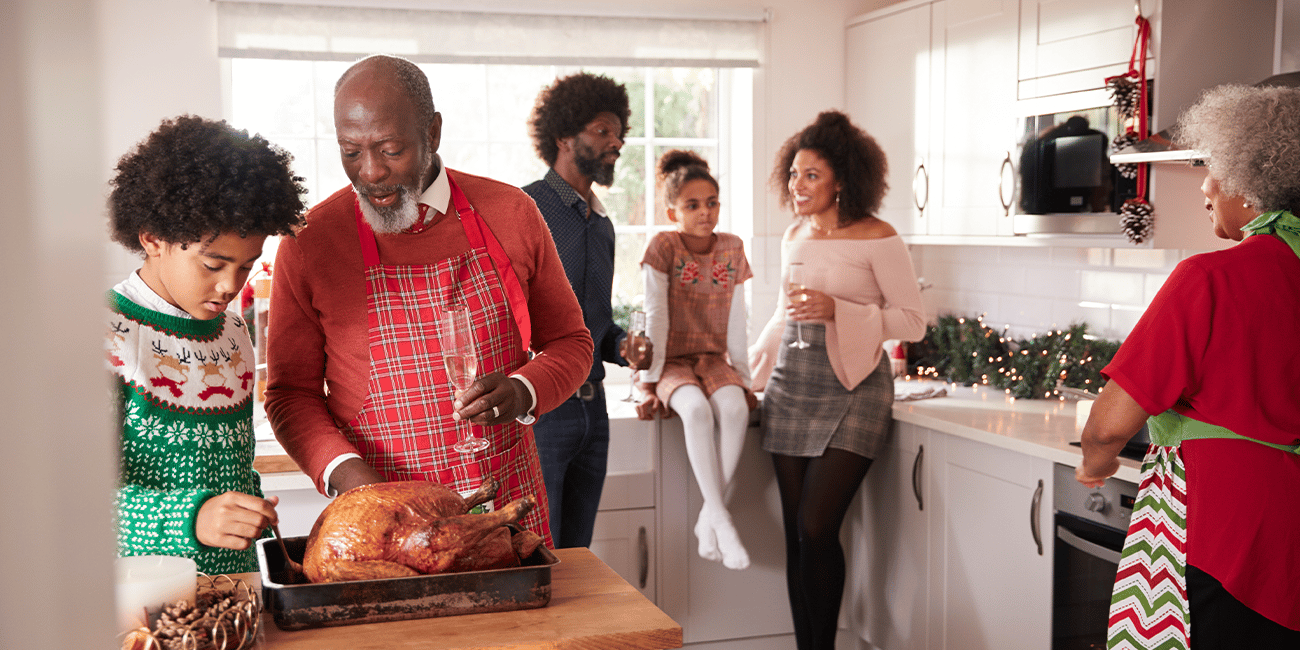A loved one may need extra support. Traveling home for the holidays is something that most of us look forward to every year. Gathering with family and loved ones, eating good food, recollecting old memories and making new ones.
Oftentimes, going home for the holidays is a great chance to reconnect with our parents or elderly loved ones. This also presents a good opportunity to do a “reality check” on how your loved one is really doing, and sometimes, with a dreadful discovery, we find out that they are not faring nearly as well as we had thought.
This abrupt realization can happen to adult children who live far away from their parents, unable to visit often and regularly look in on their aging family members. Not wanting to be a burden, their parents have claimed to be doing much better than they actually are. While this may be reassuring over the phone, adult children will often find things very different when they visit in person during the holidays.
Seeing your parent or loved one for the first time in months can be shocking, as you realize they are more fragile, less mobile, and weaker than they have led you to believe. Here are some things to look for that can be good indicators that your loved one may need extra support.
- Look around at the general state of the home and yard. Some signs of neglect include: the lawn is not maintained properly, mail is piling up in the mailbox, there is spoiled food in the fridge, the house is generally unkempt and has an odor. These are all signs that your aging loved one may have difficulty completing basic household tasks.
- Notice the supply of prescriptions and medications. If they are unfilled, your loved one could be forgetting to take or refill them, or if they have too many, they could be confusing their dosages. Ask your parent if they have been able to make all their scheduled appointments and doctors visits.
- Pay attention to how your elderly loved one acts. Are they consistently confused or experiencing memory lapses? Do they have rapid mood swings and changes in behavior? Do they seem depressed, with a lack of drive and motivation? These are important indicators to notice as they could be warning signs of dementia or other cognitive impairment.
- Examine how your parents or loved one looks. Are there noticeable and unexplained bruises? This could be a sign they are having balance issues or could have fallen. A significant weight loss can also mean they have been having difficulty cooking or just a general decline in health.
- Do they appear as well groomed as usual? Are their clothes clean, hair combed and shampooed? Do they seem as if they are freshly bathed? Does Dad need a shave? Signs of personal neglect and be a warning sign of dementia or issues with their ability to care for themselves.
- Watch your loved one move around the house. Do they have trouble moving from a seated to standing position, and vice versa? Is there an obvious weakness when completing a task? Do they need support when they walk?
- Are they less talkative or seem to spend more time sleeping or in their chair? These can be signs of declining health.
Realizing that your parent or loved one has not been faring as well as you thought can be a distressing wake-up call, but once you determine they need help, you are now able to ensure your loved one gets the proper care that they need.
If you and your loved one determine that additional care is needed, Hospice of South Texas can provide an extra layer of support wherever home may be. And if their decline is related to a more serious illness, we also deliver exceptional medical care and support to both the patient and the caregiver.
This holiday season, we encourage you to perform a holiday reality check on your aging loved ones to ensure they are living safely and comfortably, and if not, to determine a plan of action that benefits both you and your loved one. If you need help determining if your loved one can benefit from an extra layer of care and support, we can help you determine if the time is right. For more information, answers, and support, call Hospice of South Texas at our Victoria office at 361.572.4300 or our Hallettsville office at 361.798.2077 or contact us here.

